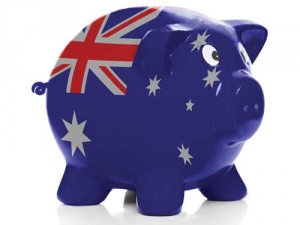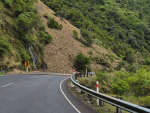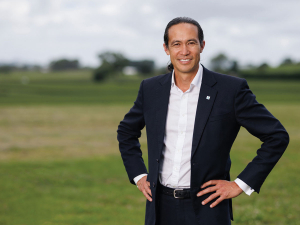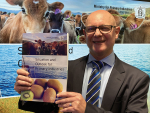Federated Farmers Dairy chairman Andrew Hoggard says each farmer must know how much he or she is paying per kgMS to prop up the Australian business, which includes 10 manufacturing sites.
He says farmers know Fonterra has to pay an attractive milk price in Australia to secure supply but the investment is not paying dividends now.
His comments come as Fonterra shareholders learnt that Australian suppliers are being paid more than $1 extra for every kgMS supplied to the co-op this season.
The co-op last month announced an opening average farmgate milk price of NZ$6.30/kgMS* for its Australian suppliers, who don’t own shares in the co-op. In May Fonterra announced an opening forecast price of NZ$5.25/kgMS for its New Zealand farmer shareholders.
Fonterra is also forecasting an average closing farmgate milk price range of NZ$6-$6.83/kgMS for Australian suppliers this season.
Fonterra Australia national milk supply manager Matt Watt told Dairy News the Australian milk price is weighted towards the domestic market, which is intensely competitive, driving milk prices higher as processors compete to retain supply.
“In addition, unlike the New Zealand market – where almost 95% of milk is destined for export where global volatility is a defining factor – only around 60% of Fonterra Australia’s milk goes to the export market, meaning it is less exposed to global commodity prices,” Watt says.
Fonterra competes with Australian dairy co-op Murray Goulburn and foreign-owned processors like Lion and Saputo for milk. Unlike NZ, where Fonterra dominates the market, in Australia MG, the biggest player, is the price setter.
Murray Goulburn last month also announced an opening forecast price of NZ$6.30/kgMS. If MG suppliers receive total farmgate returns in excess of A$6.00/kgMS this year, it will be a record third consecutive year the payout has touched A$6/kgMS.
Hoggard says most farmers know Fonterra has to act like a corporate in Australia, much like Open Country Dairy and Synlait in NZ.
“We know Fonterra is not a price setter and has to match competitors otherwise we don’t secure supply. At the same who is paying for that extra money going to Fonterra’s Australian suppliers? We are.”
Hoggard says farmers know their feed costs and cost of interest for every kgMS. Likewise they should know how much they are putting into the Australian business and the returns being generated in kgMS.
“Fonterra needs to get more transparent about its Australian business with shareholders. We go out and get overseas milk pools; we know you’ve got to pay what you have to pay to get milk but let’s see some returns from that.”
Fonterra Australia says its opening price and forecast closing range are more cautious than recent seasons.
The global environment remains particularly volatile, it says.
“Since December we have seen commodity prices decrease due to increased global production and a resulting oversupply of dairy commodities. This has coincided with weakening demand which has had some impact locally.
“Although global conditions are challenging, the longer term fundamentals remain positive for Fonterra, with the planned Beingmate joint venture partnership with our Darnum site.”
* Conversions for this article are based on the 2nd July 2015 exchange rate.


















